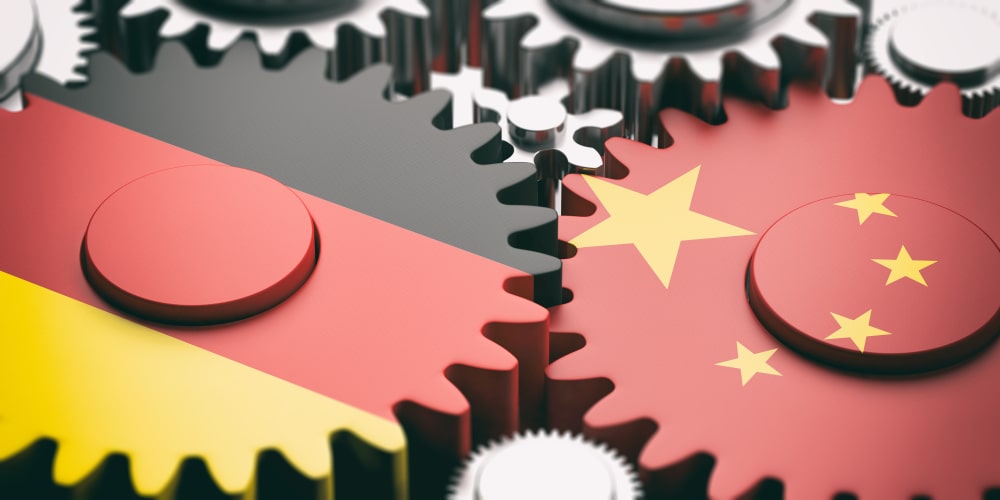
Beijing has become ‘more repressive internally and more aggressive externally’, according to remarks by German foreign minister Annalena Baerbock, which were reported in the Financial Times.
The foreign minister was speaking at the launch of a new document that outlines a potential reset of Germany’s trade policy with China, with the goal of making “companies more aware of the risks they face in doing business with the country’s largest trading partner.
China is a key trading partner for Germany, with many leading German companies including Volkswagen, BMW and Mercedes-Benz having a large presence in China.
The document highlights concern of China’s so called “wolf warrior diplomacy”, which is viewed as being a more confrontational and combative approach to international relations.
Many analysts believe that this approach has contributed to a rise in tensions between China and the West over a range of issues, most notably over Taiwan.
The main conclusion of the document is that companies need to overhaul their supply chain strategies to prioritise longer-term resilience against short-term benefits. Companies should, the report notes, look to diversify their supply chains away from being too reliant on China.
German firms could follow other firms in adopting a “China Plus One” strategy, whereby companies set up alternative operations in countries such as Vietnam and India, while maintaining a presence in China.
Adopting such a strategy, would help make German companies less vulnerable to any future disruption in China, the report argues.
The German industry’s response to the report was positive, with the Bosch chief executive, Stefan Hartung, praising the document for striking a “balance” in its tone.
“The unthinkable has to be thought through, but I don’t work under the assumption of the unthinkable,” he told the FT.
“I think it’s good that the China strategy of the Germans also is not written under the assumption of the unthinkable, it’s written under the assumption of the status quo.”
This report will chime with not just risk managers of German companies, but with all risk managers across the corporate sector.
The message from risk managers, whether it be from members of the Russell Working Group or speakers at events and conferences, has been that organisations need to diversify their supply chains to help make their business more resilient.

Related Articles
Corporate risk
Corporate risk
Corporate risk